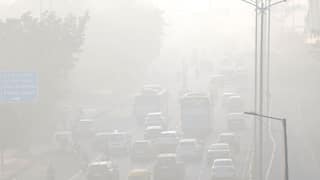World Schizophrenia Day: Hidden Signs To Diagnose Schizophrenia In Patients Who Are Unaware Of Their Condition
When a patient is not aware that they suffer from a particular disorder or psychiatric deficit, they are said to have anosognosia. However, some hidden signs can help identify schizophrenia in them.

Schizophrenia is a serious mental health disease beyond hallucinations, delusions, thought disorders and movement disorders. Often, a schizophrenic is not aware that they are suffering from the condition because no hallmark symptoms are visible.
When a patient is not aware that they suffer from a particular disorder or psychiatric deficit, they are said to have anosognosia.
However, some hidden signs can help identify schizophrenia in these patients.
Also, certain early indicators in young children below two years of age may suggest a higher risk of developing schizophrenia in the future.
Hidden signs of schizophrenia
The covert symptoms which can help diagnose schizophrenia in people who are unaware that they suffer from the disorder include declining academic performance, a loss of interest in previously enjoyed activities, changes in sleep patterns, impaired communication skills, a decline in social functioning, disorganised behaviour and thinking, struggle maintaining relationships, and becoming increasingly isolated, among others, according to experts.
“Schizophrenia can present unique challenges when it comes to diagnosis, especially when individuals are unaware that they have the condition. However, there are hidden signs that can help identify schizophrenia in such cases. One key indicator is a decline in social functioning. People with undiagnosed schizophrenia may struggle with maintaining relationships, experiencing difficulties in communication and understanding social cues. They may become increasingly isolated and withdrawn from social interactions,” Dr Pradeep Khandavalli, MBBS, DNB General Medicine, DM & DNB Nephrology, told ABP Live.
Reduced overall functioning and a lack of awareness of one’s own experiences or symptoms are some other covert symptoms in people with schizophrenia. Therefore, their near and dear ones should monitor them closely if such signs are seen.
“A decline in work or academic performance, social withdrawal, a loss of interest in previously enjoyed activities, changes in sleep patterns, unusual or disorganised behaviour, difficulties communicating or expressing thoughts, and a lack of awareness of one's own experiences or symptoms are some examples of covert signs. Family, friends, or healthcare professionals may need to keep a close eye out to spot these hidden symptoms and start proper evaluation and treatment,” Dr Ravindra Srivastava, Director, Neurosciences, Primus Super Speciality Hospital, New Delhi, told ABP Live.
Dr Khandavalli explained that changes in behaviour and personality can also provide clues to the presence of schizophrenia. For instance, they may laugh or cry inappropriately, and exhibit unusual emotional responses.
“Individuals may exhibit unusual or inappropriate emotional responses, such as laughing or crying inappropriately. Their behaviour may become increasingly disorganised, with difficulty in maintaining coherent conversations or following a logical train of thought,” he said.
Dr Khandavalli said that observing changes in thought processes can also be informative. “Disorganised thinking, as evidenced by fragmented speech or a lack of logical connections between ideas, may be present. Additionally, individuals may experience difficulties in concentration and attention, making it challenging to engage in tasks that require sustained focus.”
He concluded that it is crucial to note that diagnosing schizophrenia requires a comprehensive evaluation by a qualified healthcare professional, and the presence of these hidden signs can guide healthcare providers in making an accurate diagnosis and developing an appropriate treatment plan.
ALSO READ | World Schizophrenia Day: Schizophrenia Is Beyond Hallucinations And Delusions. Know Its Unusual Symptoms
Early indicators of schizophrenia in children below two years of age
According to Dr Khandavalli, it is challenging to identify potential signs of schizophrenia in young children below two years of age because symptoms usually emerge during adolescence or early adulthood, but certain early indicators, such as a delay or regression in developmental milestones, may suggest a higher risk of developing the disease in the future.
“Parents may notice a decline in language and social skills, as well as a loss of previously acquired abilities. These changes can be subtle and may not be clearly visible,” he said.
According to Dr Srivastava, early indicators which could point to a future risk of schizophrenia include a family history of schizophrenia or other psychiatric disorders, developmental delays, social withdrawal and decreased interaction with others, impaired language or communication skills, unusual or repetitive behaviours, and difficulty with motor coordination.
He said that early detection and intervention are essential, and a thorough assessment by a licensed healthcare provider is required for an accurate diagnosis and the right kind of support.
Check out below Health Tools-
Calculate Your Body Mass Index ( BMI )







































